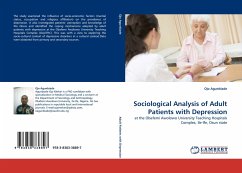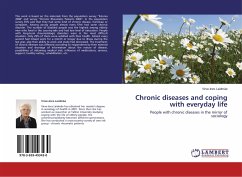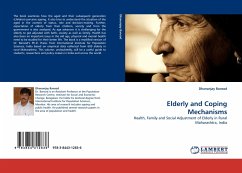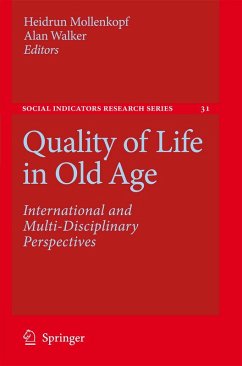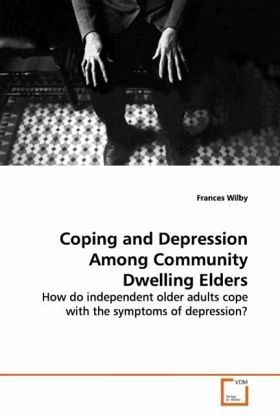
Coping and Depression Among Community Dwelling Elders
How do independent older adults cope with the symptoms of depression?
Versandkostenfrei!
Versandfertig in 6-10 Tagen
39,99 €
inkl. MwSt.

PAYBACK Punkte
20 °P sammeln!
Depression in older adults has been widely studied inthe institutionalized population but less is knownabout independent community dwelling older adults anddepression. This work was designed to learn moreabout how depression impacts community dwelling olderadults, how they cope with depressive symptoms,whether they perceive themselves to be depressed, andhow they view the effectiveness of their copingstrategies. A random sample was taken of 100community dwelling older adults who live in a westerncity in the United States. 27.5% of the samplesuffered from significant depressive symptoms asmeasu...
Depression in older adults has been widely studied in
the institutionalized population but less is known
about independent community dwelling older adults and
depression. This work was designed to learn more
about how depression impacts community dwelling older
adults, how they cope with depressive symptoms,
whether they perceive themselves to be depressed, and
how they view the effectiveness of their coping
strategies. A random sample was taken of 100
community dwelling older adults who live in a western
city in the United States. 27.5% of the sample
suffered from significant depressive symptoms as
measured by the CES-D indicating that depression is a
serious concern for this group. The depressed group
used more emotion oriented coping strategies than the
nondepressed group. The nondepressed group used more
problem solving strategies and fewer emotion oriented
strategies. The depressed group consistently ranked
themselves as less effective in dealing with
depressive symptoms. Men who rated themselves more
effective also had less depression after controlling
for functional ability. The study has broad
implications for social work practice.
the institutionalized population but less is known
about independent community dwelling older adults and
depression. This work was designed to learn more
about how depression impacts community dwelling older
adults, how they cope with depressive symptoms,
whether they perceive themselves to be depressed, and
how they view the effectiveness of their coping
strategies. A random sample was taken of 100
community dwelling older adults who live in a western
city in the United States. 27.5% of the sample
suffered from significant depressive symptoms as
measured by the CES-D indicating that depression is a
serious concern for this group. The depressed group
used more emotion oriented coping strategies than the
nondepressed group. The nondepressed group used more
problem solving strategies and fewer emotion oriented
strategies. The depressed group consistently ranked
themselves as less effective in dealing with
depressive symptoms. Men who rated themselves more
effective also had less depression after controlling
for functional ability. The study has broad
implications for social work practice.




